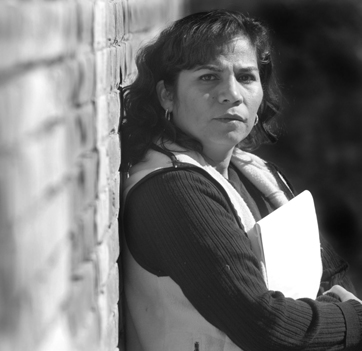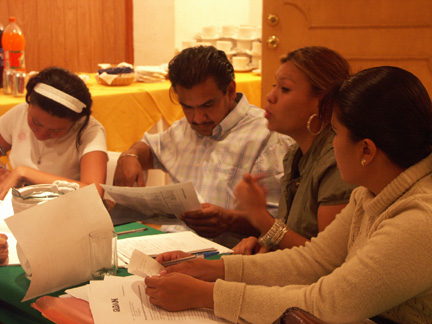WELCOME TO THE ARCHIVE (1994-2014) OF THE MAQUILA SOLIDARITY NETWORK. For current information on our ongoing work on the living wage, women's labour rights, freedom of association, corporate accountability and Bangladesh fire and safety, please visit our new website, launched in October, 2015: www.maquilasolidarity.org
The Border Committee of Workers (Comité Fronterizo de Obrer@s - CFO) is a grassroot organization that supports union democracy and workers rights in six cities along the Mexico-U.S. border.
With support from the CFO, thousands of maquiladora workers have won significant victories, including:
The CFO consists of workers whose consciousness has already been raised and who want to help our coworkers. We are all current or former maquiladora workers. We are active in three of Mexico 's border states: Tamaulipas, Coahuila, and Chihuahua. Our main office is in the city of Piedras Negras in Coahuila.
The CFO was established in 1986 as an independent Mexican organization, although its efforts date back to 1978 as a binational Quaker project. It is set up as an asociación civil, the Mexican equivalent of a nonprofit organization. The CFO is an inclusive group that respects the political, religious, and sexual preferences of its members. It is indepent of the government and of all political parties.

The following is an edited version of an interview by US journalist David Bacon with Julia Quiñonez, the coordinator of the Border Committee of Women Workers. The CFO is a grassroots organization that's led by women and men who work in the maquiladoras. The CFO works in three Mexican states, Tamaulipas, Coahuila, and Chihuahua. Its purpose is to educate and organize workers around their labor rights. The organization also focuses on discussing the impact of free trade on workers.
 Representatives of labour rights and women’s organizations from different regions in Mexico came together for a workshop of the Espacio network. This is the third workshop of the new network, which provides a space for the participating groups to do critical analysis and develop alternative strategies to tackle the impacts of global trade liberalization on the Mexican garment industry.
Representatives of labour rights and women’s organizations from different regions in Mexico came together for a workshop of the Espacio network. This is the third workshop of the new network, which provides a space for the participating groups to do critical analysis and develop alternative strategies to tackle the impacts of global trade liberalization on the Mexican garment industry.